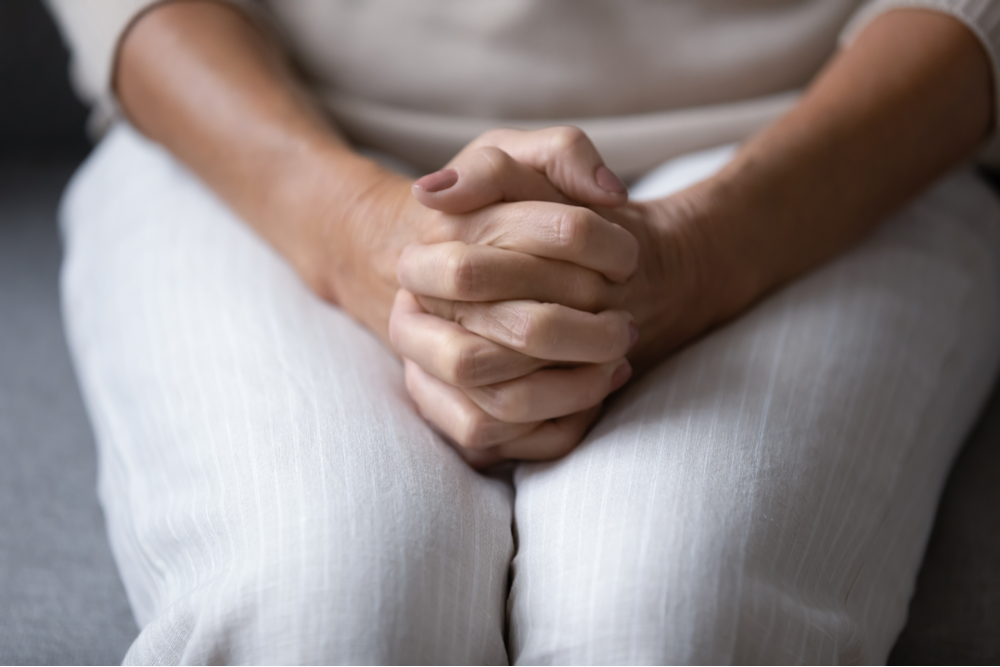Residential treatment for a substance use disorder is a scary step initially. The thought of spending your days in some sort of hospital meant to “clean” you up might seem too much. However, much of the staff at Brazos Valley isn’t just a doctor, nurse or clinician. Instead, these are folks with their own recovery stories, managing the very same disorder bringing you to the door for help.
Recovery Stories: Marlys Shelton
Marlys Shelton is one of these amazing Brazos Valley staff members with an inspiring recovery story of her own to share. After a relapse, Marlys realized she had more interior work to do. Recovery, for her, is an inside job.
“I had to work for my recovery,” Marlys said. “At first, I did not do that on the inside,” she added.
Marlys had 10 years of sobriety before a relapse. During this initial period of sobriety, she attended college, married and had children. Life seemed good.
“On the outside, things look good,” Marlys reflected. “I graduated with a 3.75 GPA, played softball all over the U.S., and made the dean’s list three times,” she continued.
Looking back, however, Marlys sees now how her difficult childhood and other deep inner issues kept her from experiencing recovery to its fullest potential. “During the 10 years I had before relapse, I held back due to not addressing the behaviors that held me back,” she said. “I didn’t fully use the tools rehab and Alcoholics Anonymous (A.A.) gave me,” she added.
According to Marlys, a fixation on the exterior stuff prevented her from looking inward. “I was always looking outside of me to fix the problems inside of me,” she said. “These included husbands, places, things, etc.”
This pattern of running, according to Marlys, started when she was a child. A survivor of physical and mental abuse, the ability to get away from home, at first, served as a means of survival.
“I was always happy to escape the horror I was going through at home,” she said. “Either I was running or was not looking on the inside of me,” she added.
Life has stressors, some big and some small. Without self-awareness and insight about past trauma, these life stressors can knock you out cold. Some of these stressors hit Marlys before her relapse and some after.
“When you relapse, it does not get better; it does get worse,” she reflected. “I was separated from my husband for six months,” she continued. “I lost the trust and confidence of my husband and children and did things I said I would never do.”
During her relapse, Marlys’s sister died at the age of 34, and an accident left Marlys’ 25-year-old son in a coma.
Then, a moment of clarity appeared for Marlys. She knew she was in trouble again.
“One day, I was sitting in my apartment and, for a split second, the question came up in my clouded mind, ‘Either get on with living or get on with dying,’” she remembered.
Marlys describes the disease of alcoholism as a slow death. Something about this gradual decline motivated her to head back to A.A.
Transformation Begins Within
“On May 6, 2018, I picked up a chip at 12 p.m.,” she said.
Life is very different for Marlys today. She is in therapy, sees a psychiatrist, has a sponsor and is back working in the substance abuse treatment field.
“It is up to me to participate in my recovery,” Marlys said, “to use the tools that treatment, therapists, psychiatrists offer, so I can be balanced.”
For Marlys, the key factor within this balance is the reality she will have to put in the hard work.
“I accept I will have to work harder than normal people,” she explained, “to get to the root and cause of my childhood that hindered my growth mentally and spiritually.”
According to Marlys, it’s this hard work that gives her the ability to give back and be of service to others with substance use disorders.
“My scars serve a purpose to heal others in their journey of recovery,” she explained. “The journey is the destination,” she added.
Marlys is committed today to live life on life’s terms. “I do not get a medal for doing what everyone else does on a normal basis,” she said. “However, I do need to accept that I have to work harder because I am a survivor of physical abuse and mental abuse.”
Finding Hope through the Challenges
Marlys loves her life today. And, she sees how the hard times bring value to others. Her journey hasn’t been easy, but this makes it all the more valuable to others with similar issues.
“More than anything, I love life,” she said, “and I love the ups and downs. My scars serve a higher purpose of helping the next person,” she continued.
These scars, Marlys is quick to point out, aren’t riddled with shame, guilt, remorse, or hate any longer.
“I have the tools recovery has given me,” she said. “The same tools that I allowed to collect dust to help me get out of me; To discover me.”
For those still struggling, Marlys wants people to know there is hope. “You just need to have an open mind and quit letting those committees in your head win,” she said. “Be okay with asking for help,” she continued. “Be honest with yourself. It’s a journey and, it does get better if you allow it to.”

